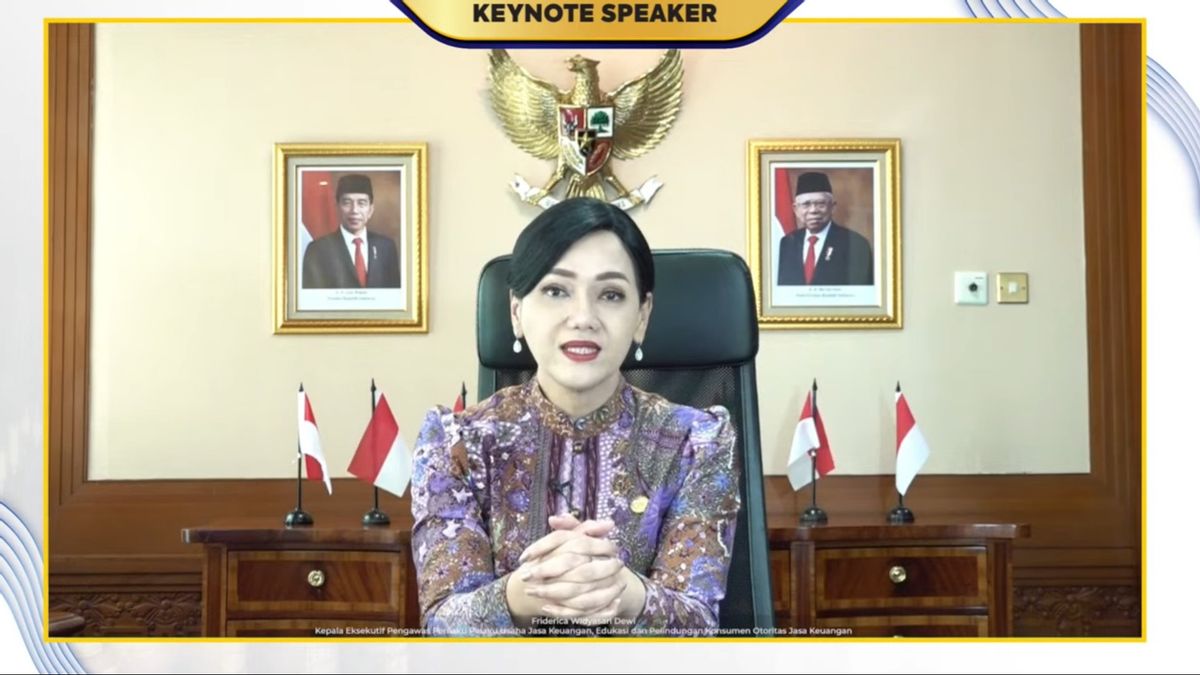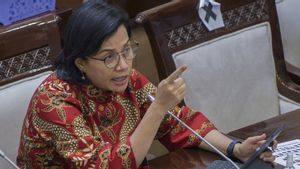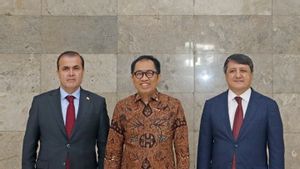JAKARTA - The Financial Services Authority (OJK) said Indonesia faces a number of challenges in realizing an even digital economy throughout the country.
"There are several challenges to realizing the digital economy in Indonesia, namely first there is still a gap between the literacy level and also the level of financial inclusion in Indonesia," said OJK's Chief Executive of the Behavior Supervisory for Financial Services Business Actors, Education and Consumer Protection Friderica Widyasari at the Indonesian Financial Literacy Conference 2023 event in Jakarta, on Friday, July 21.
The Chief Executive, who is often called Kiki, said that based on the national survey of literacy and financial inclusion in 2022, there is still a gap between the level of literacy and also the level of financial inclusion in Indonesia.
"If we look at the literacy rate of around 49 percent, while the inclusion rate is 85 percent. This means that there is still a gap between people who use products and services, but actually it is not too literate with the financial products and services they use," he said.
For the second challenge, Kiki said, there is still a gap between literacy and inclusion between regions which is also not evenly distributed. "This feels like our homework is to increase financial literacy and inclusion in various regions," he said.
Based on the data, Kiki said, currently there are still 14 provinces with literacy and financial indexes that are below the national average and there are still 15 provinces with financial inclusion indexes that are below the national average.
"In addition, there is still a gap between literacy and digital financial inclusion of the community. If we look now digital financial literacy has reached 41 percent, while the inclusion has reached 55.82 percent," he said.
According to Kiki, this certainly has an impact on increasing vulnerability to various risks related to digital transactions, such as increasing losses from cyber crime risks.
Next, continued Kiki, based on data from the National Cyber and Crypto Agency (BSSN) there are more than 700 million cyber attacks in 2022 which are dominated by range adware and malware.
Then, of course, there is an increase in exposure to various cases of fraud under the guise of loans or investments, including the emergence of a crazy rich phenomenon that is very disturbing to the public.
اقرأ أيضا:
Not only that, Kiki also mentioned, there is exposure to illegal online loans and various modes of fraud in today's digital era, such as social engineering in the financial services industry and also the vulnerability of personal data theft in the digital era.
"On the other hand, we also realize that there is still a gap in the provision of financing from financial institutions to meet the need for access to MSME financing, which is hoped to be bridged through the provision of digital access to finance," he explained.
Even so, said Kiki, his party will be committed to continuing to encourage the development of the digital economy in Indonesia, especially through the development of digital finance which is inclusive and of course prioritizes consumer and public protection.
"In the midst of these developments, the OJK has obtained reinforcement in the P2SK Law in the form of affirmation regarding the role of supervising the behavior of financial service business actors or market contacts, so as to be able to respond to changes in people's preferences towards digital," he added.
The English, Chinese, Japanese, Arabic, and French versions are automatically generated by the AI. So there may still be inaccuracies in translating, please always see Indonesian as our main language. (system supported by DigitalSiber.id)











